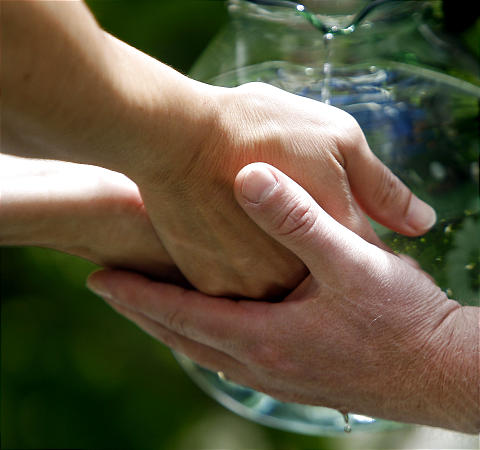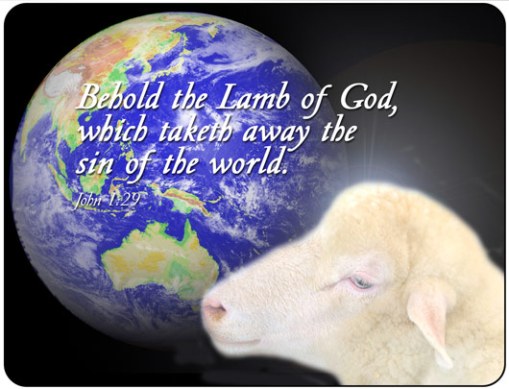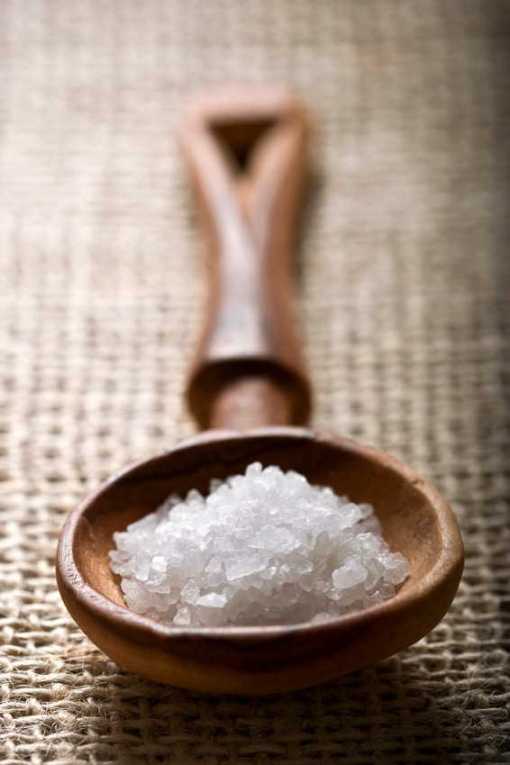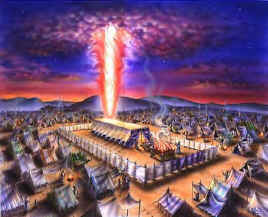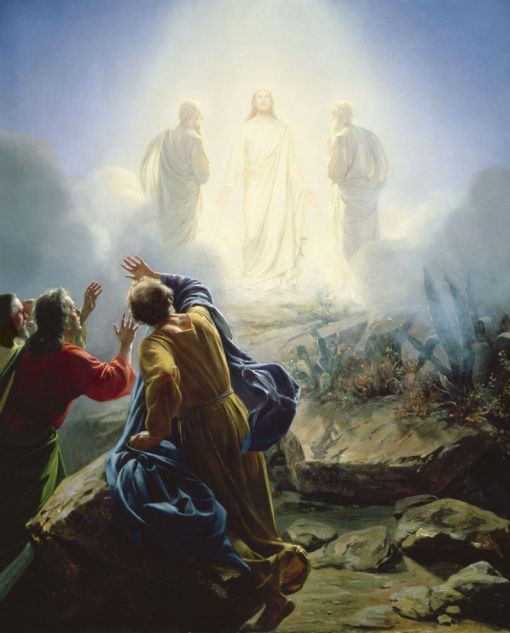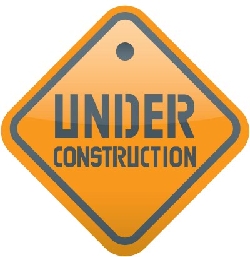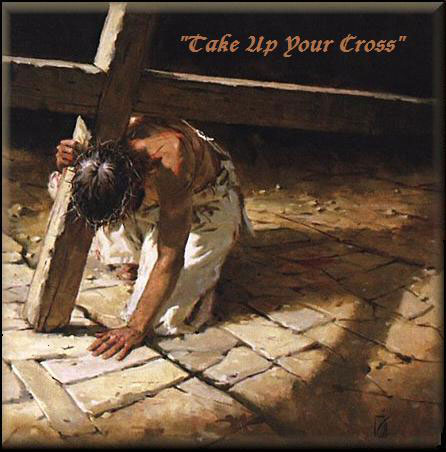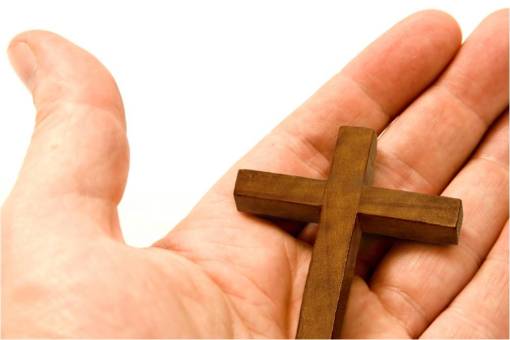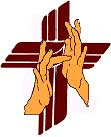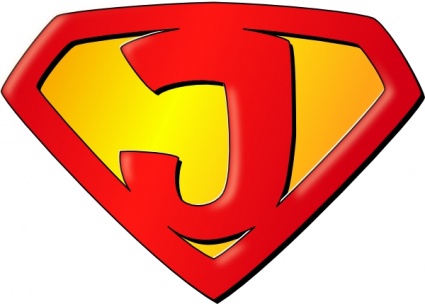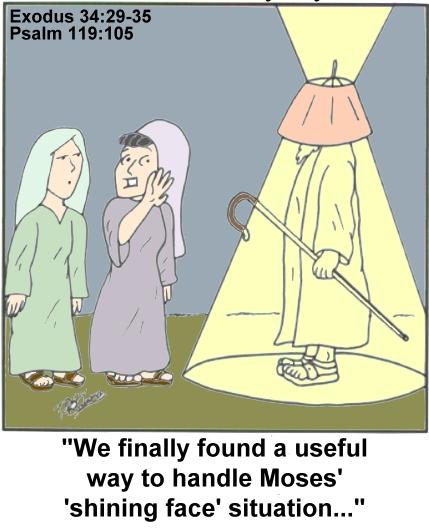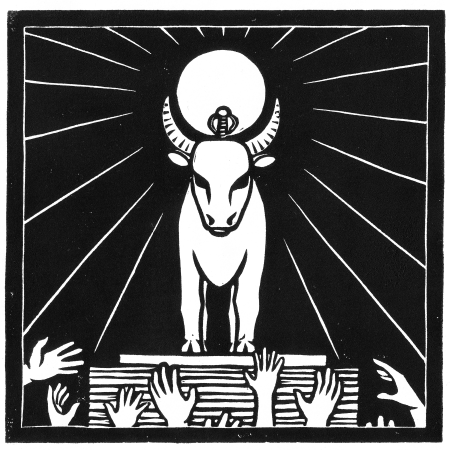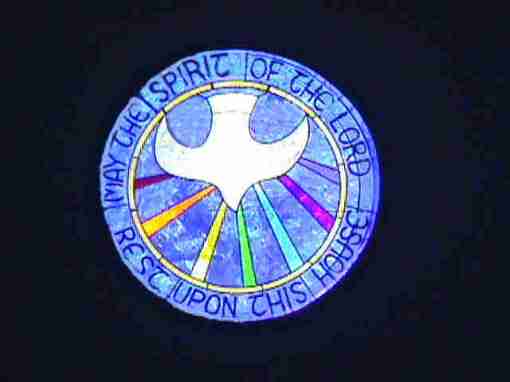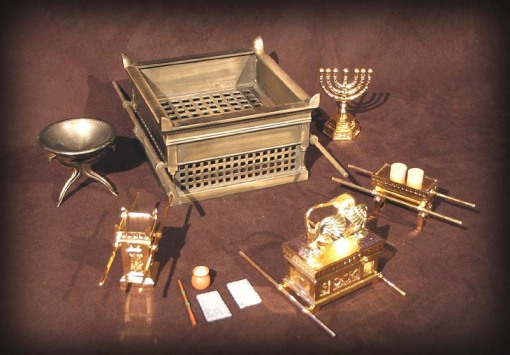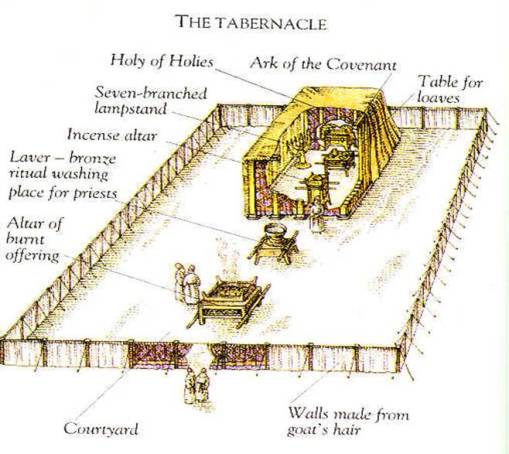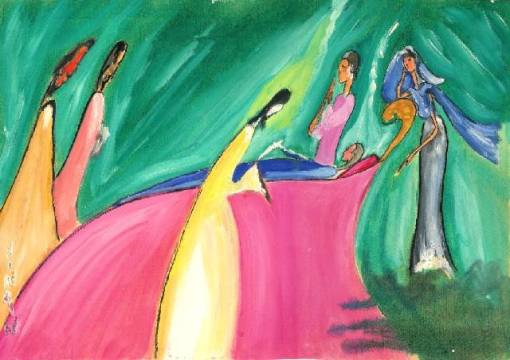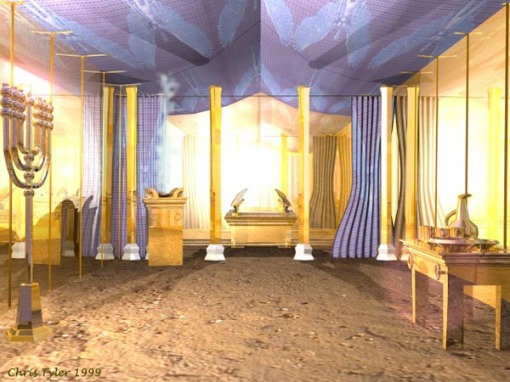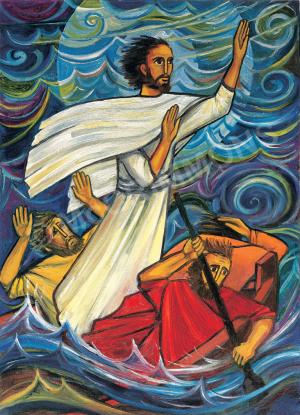DAY FIFTY-NINE : Leviticus 4 v. 1 – 5 v. 13; Mark 10 v. 13 – 31; Psalm 27 v. 7 – 14
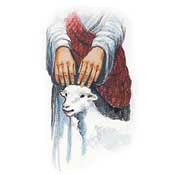 LEVITICUS 4
LEVITICUS 4
The Sin Offering
Unintentional sin (breaking a commandment) –
(i) if it’s the priest who sins, a spotless young bull is to be sacrificed as atonement (lay hands on it, then slaughter it) – the priest dips the blood and sprinkles seven times in front of the sanctuary curtain, more blood sprinkled on the altar (of incense), and the rest poured at the foot of the burnt-offering altar. The fat and the kidneys to be burnt on the altar, the rest is to burned outside the camp and burned.
(ii) if it’s the whole community who sins (even unawares), the whole assembly brings a young bull as a sin offering; the elders lay their hands on the bull, before slaughter, then the priest does as above with the blood and the carcass;
“In this way, the priest will make atonement for them, and they will be forgiven.”
(iii) if it’s a leader who sins unintentionally, a spotless male goat is sacrificed (similarly, hands laid on the goat before slaughter), the priest sprinkles blood on the altar and pours the rest at the foot of the burnt-offering altar. The goat’s fat is burned, but no mention of what happens to the carcass. The leader will be forgiven through this act of atonement.
(iv) if a community member sins unintentionally, a spotless female goat, or a female lamb is sacrificed (as above), and he will be forgiven
I noted the size of the sacrifice was in proportion to the responsibility upon the shoulders of an individual / group : the priest, the whole people, the leader, and then any other person.
Whereas previous offerings were voluntary, in one sense, here these offerings are compulsory, to be forgiven for a particular act of sin.
The sin of the priest or of the whole community is more serious (affects a greater number of people, perhaps) – the blood of the sacrifice is taken into the ‘sanctuary’ onto the altar of incense, and the carcass is burned off-site.
LEVITICUS 5
(a) not speaking out about an issue you have witnessed is a sinful act – you have a duty to speak out
(b) touching unclean animals (dead carcasses included) or human uncleanness (even unawares), makes us guilty
(c) careless oathmaking makes us guilty
if any of the above, first confess, then a female goat or lamb must be sacrificed (as a penalty), or (if too poor to afford a lamb) two doves or pigeons (one for a sin offering, one for a burnt offering) – the birds are offered and the offender is forgiven. If too poor to afford the birds, then 1/10th of an ephah of flour is to be offered (some burned, the rest kept by the priest).
MARK
Little Children – Jesus already highlighted the value of a small child in yesterday’s readings, and the disciples are so slow to learn the cultural shift Jesus is seeking to bring in – to Jesus, small children are not only welcome, but hold some of the keys of understanding and receiving the kingdom – “anyone who will not receive the kingdom of God like a little child will never enter it.”
Jesus blesses the children who come to Him.
I was struck by the image of laying hands on the children – there is so much in the Leviticus readings about humans laying their hands on a lamb or bull as an atonement sacrifice (we need to lay our hands on Jesus (or lay our lives before Him), as our lamb of atonement), but here we see Jesus laying hands of blessing upon the youngsters. The disciples and the elders of the church will be called upon to lay hands on people for their healing, or for blessing. How will we use our hands today – hands of surrender, of atonement, of laying down, and hands for healing, for blessing.
The Rich Young Man – Jesus, again, sees into the heart of this honest God-seeker, who has faithfully kept the commandments since childhood. What has a hold on this young man is his wealth, his possessions. His next lesson in discipleship, in seeking to serve God will be to learn to treasure not wealth but God, heavenly treasure. It’s too much for the man, at this stage (Jesus even acknowledges and underlines how hard the rich will find it), but you can’t help wondering what seed has been sown there, and how this man’s life pans out. The last we see of him, here, he goes away crestfallen and sad. He has much to think about. I’m sure it’s not the end of his story.
I’m so glad that there are stages upon our journey. Sometimes, just as we think we’re getting somewhere in it all, a deeper challenge comes along. Though it may be hard, there’s a new lesson to be learned. And so often, it’s a lesson in stripping all away, and learning deeper surrender to God, laying all down before Him.
“Then come, follow me.”The disciples wonder if the journey is too hard, even impossible, for most (even themselves). Jesus reminds them (and us) that it’s more about the wonderful possibilities in life WITH GOD !
“With man, this is impossible, but not with God: all things are possible with God.”
And a little aside to those who know they’ve given up a lot to follow, to serve Christ – home, family, possessions – will receive a hundred times more – sense of home, family, possessions, and persecutions !! – and ultimately eternal life.
Again, it’s about learning to see the primacy of being last, surrendering the desire to be top dog!
I am reminded, once again, about the Covenant Prayer :
“Let me be employed for You, or laid aside for You
Exalted for You, or brought low for You
Let me have all things, let me have nothing
I freely and wholeheartedly yield all things to Your pleasure and disposal….”
PSALM 27
“Teach me Your way, O Lord;
lead me in a straight path….
I will see the goodness of the Lord
in the land of the living.
Wait for the Lord; be strong and take heart
and wait for the Lord.”
My re-created thoughts :
When reading the book of Exodus, the daily news was about the plight of the Egyptians and their push for democracy, for a new freedom.
Whilst reading Leviticus, Libya is the constant news story. In my reflections today, when sinners use their hands in surrender and seeking atonement for their sin, and when Jesus uses His hands to bless and to heal, my heartfelt prayer is that in Libya, which may see terrible loss of life (of people laying down their lives seeking a new freedom), hands that are plotting destruction and death will be stopped, and an outpouring of blessing and healing will flood the land.
We pray!
“It’s not what God had wanted – we’ve ignored the Maker’s plans.
He made us not for clenching fists – but for offering helping hands.”
Lord, use our hands today,
not for bashing, but for blessing
not for hurting, but for healing
not for destroying, but for deepening Your kingdom on earth
not for cutting people off, but for drawing people into Your great love.
Lord, use our hands today,
in forgiving, and in setting others free.
AMEN.
